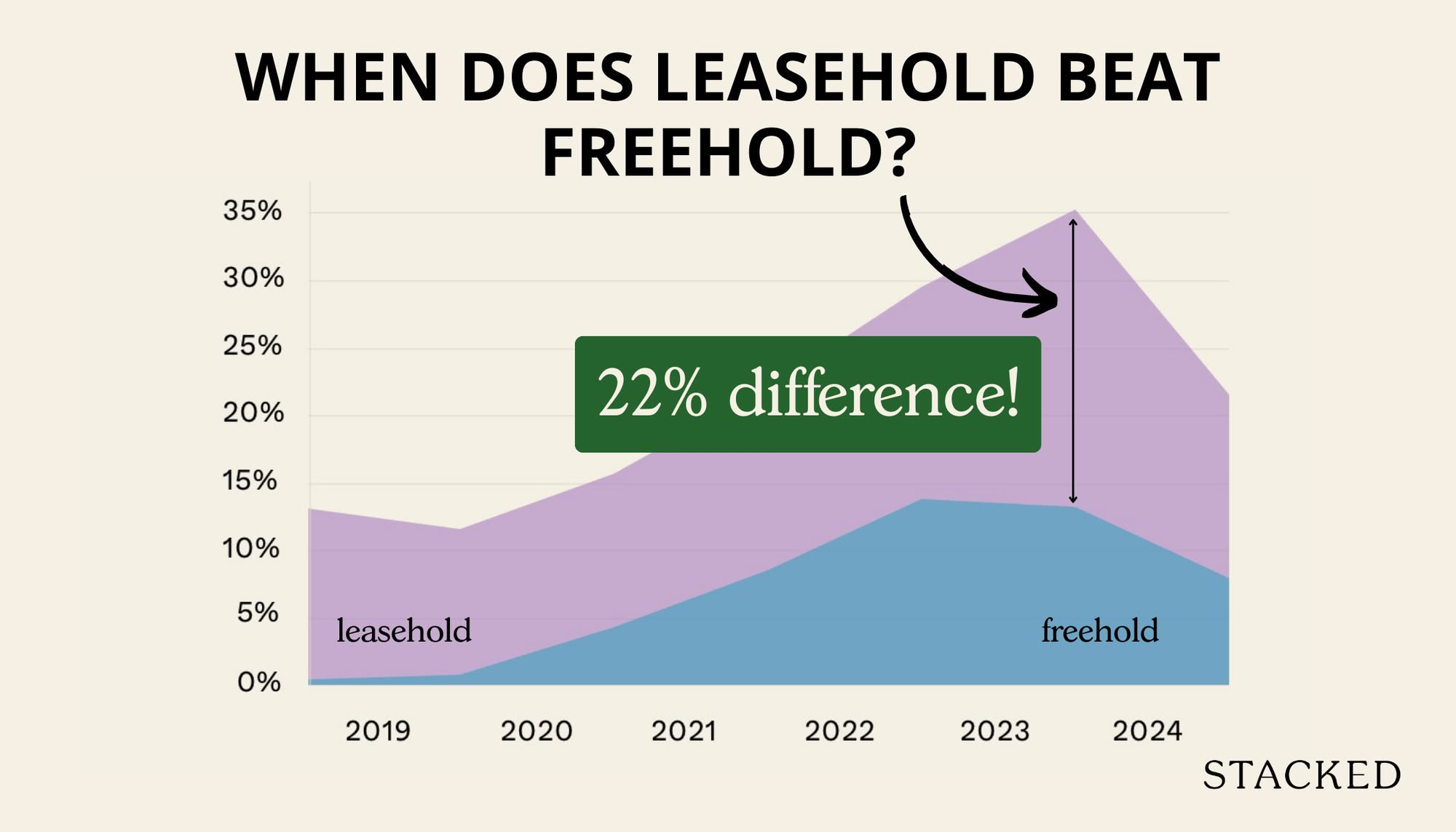Can Leasehold Condos Deliver Better Returns Than Freehold? A 10-Year Data Study Says Yes
May 8, 2025

In this Stacked Pro breakdown:
- We compared 10 years of freehold and leasehold condo transactions across resale, sub-sale, and new launches
- In shorter time frames, one tenure outpaced the other by over 20%, revealing patterns most buyers overlook
- But stretch the timeline far enough, and a surprising reversal happens — with returns most buyers don’t expect
Already a subscriber? Log in here.
It’s been drilled into the Singaporean mindset that “freehold is better.” But this is an oversimplified saying that ignores a key fundamental factor: that of time.
Join our Telegram group for instant notifications
Join Now
Ryan J. Ong
A seasoned content strategist with over 17 years in the real estate and financial journalism sectors, Ryan has built a reputation for transforming complex industry jargon into accessible knowledge. With a track record of writing and editing for leading financial platforms and publications, Ryan's expertise has been recognised across various media outlets. His role as a former content editor for 99.co and a co-host for CNA 938's Open House programme underscores his commitment to providing valuable insights into the property market.
Popular Posts
On The Market
Here Are The Cheapest 5-Room HDB Flats Near An MRT You Can Still Buy From $550K
New Launch Condo Reviews
River Modern Condo Review: A River-facing New Launch with Direct Access to Great World MRT Station
Singapore Property News
The Unexpected Side Effect Of Singapore’s Property Cooling Measures
Need help with a property decision?
Speak to our team →Read next from Property Investment Insights

Property Investment Insights Why Some Central Area HDB Flats Struggle To Maintain Their Premium
February 26, 2026

Property Investment Insights This 130-Unit Condo Launched 40% Above Its District — And Prices Struggled To Grow
February 24, 2026

Property Investment Insights These Freehold Condos Barely Made Money After Nearly 10 Years — Here’s What Went Wrong
February 24, 2026

Property Investment Insights River Modern Starts From $1.548M For A Two-Bedder — How Its Pricing Compares In River Valley
February 21, 2026
Latest Posts

Singapore Property News REDAS-NUS Talent Programme Unveiled to Attract More to Join Real Estate Industry
February 27, 2026

Singapore Property News Three Very Different Singapore Properties Just Hit The Market — And One Is A $1B En Bloc
February 27, 2026

On The Market Here Are Hard-To-Find 3-Bedroom Condos Under $1.5M With Unblocked Landed Estate Views
February 27, 2026

Singapore Property News Singapore Could Soon Have A Multi-Storey Driving Centre — Here’s Where It May Be Built
February 26, 2026


































0 Comments